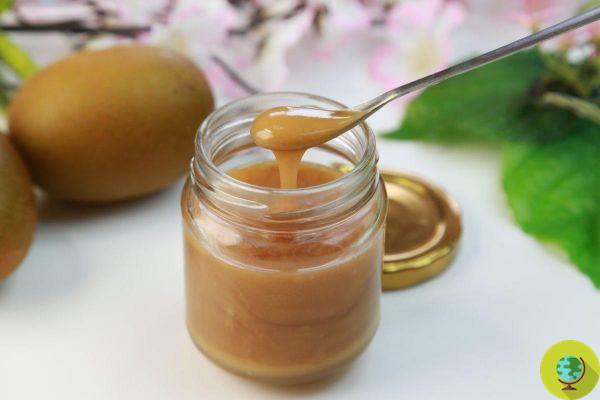
A new study confirms the antifungal properties of manuka honey which is confirmed as a great ally against antibiotic resistance
Don't store avocado like this: it's dangerousA new study confirms the antifungal properties of manuka honey which is confirmed as a great ally against antibiotic resistance
Manuka honey is a honey produced by European bees that feed on the Manuka tree, a plant native to New Zealand. A recent study confirms the antimicrobial potential of Manuka honey su antibiotic resistant bacteria.
The action of Manuka honey against microorganisms
Manuka honey has long been known for its antibacterial and anti-inflammatory properties for both topical and oral use. The properties of Manuka honey have been attributed to a substance called methylglyoxal (MGO), a molecule that is derived from pyruvic acid.
Methylglyoxal is present in Manuka honey at concentrations up to one hundred times higher than in common honey. Furthermore, the presence of glucose oxidase, an enzyme involved in the production of hydrogen peroxide, has been detected in Manuka honey: the hydrogen peroxide in our body is exploited for its antimicrobial action.
Since antibiotic resistance is a priority health concern, studies on Manuka honey have focused on the antibiotic properties of this natural product for several years. In various international studies, Manuka honey has been shown to be effective in eliminating various bacterial species dangerous to humans including Escherichia coli, Staphylococcus aureus, Helicobacter pylori, Streptococcus faecalis, and Pseudomonas aeruginosa.
Manuka honey and antibiotic resistance
Today, a new study confirms the potential of Manuka honey in Pseudomonas aeruginosa lung diseases. Pseudomonas aeruginosa is a microorganism that causes chronic lung infections in patients with cystic fibrosis. Chronic infection is given by the ability of P. aeruginosa to resist the action of antibiotics thanks to the formation of a biofilm.
The study - Anti-pseudomonad Activity of Manuka Honey and Antibiotics in a Specialized ex vivo Model Simulating Cystic Fibrosis Lung Infection - set out to demonstrate the efficacy of Manuka honey in destroying the biofilm produced by P. aeruginosa.
Manuka honey was used alone and in combination with other antibiotics, using ex vivo pig lung models. P. aeruginosa isolates were found to be susceptible to Manuka honey: some isolates showed resistance to the antibiotics tested (ciprofloxacin, ceftazidime and tobramycin) but not to Manuka honey, highlighting the potential of Manuka honey as an antimicrobial.
On manuka honey you may also be interested in:
- Manuka honey: properties, uses and where to find it
- Honey against bacteria: manuka honey defeats drug resistant super bacteria
- What lies behind manuka honey?
- Manuka honey, natural antibacterial also for children, but which one to choose?


























